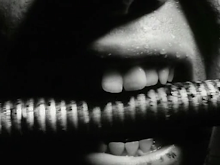
Paul Morissey, more or less Andy Worhol's liscensed filmmaker, made interesting exploitation/arthouse films in the late 60's and 70's. The complete lack of classical aesthetic give his work an amateur feel, but he uses it to his benefit - exploring the bottom layers of society with fearlessly and boldly minimalistic flair.
His 1970 film "Trash" isn't a professional film by any measure. There is little (possibly zero) attempt at sound mixing, the acting is mostly bland (hacking the nuance of the script) and the editing and pace have no rhythm. However, the subject matter itself has an energy of its own and the film is able to shock and suprise despite being restrained by the production values and acting.
"Trash" is structured around a hustler named Joe (who was in Morrissey's previous film "Flesh") and his various encounters with different women. The first element anyone will notice is the graphic nudity used in the opening sequence. Used throughout the movie, the nudity is both provocative and absurdly comical, adding to and helping to create its tone of equal parts satire and drama. With Joe's aimless conversations, Morrissey is able to aim a critical eye towards Joe and the people he spends his time with. One particularly memorable moment of the film is when Joe stays with a strange couple who are clean of drugs, but not of other social/sexual perversions. We see that drugs are far from the only factor which inhibit and corrode dysfunctional modern lifestyles. Morrissey, supposedly anti-drug himself, does poke fun at and judge substance abuse, but in this film he uses them to show an intoxicated society, fixated on self-serving, shameless pleasure.

